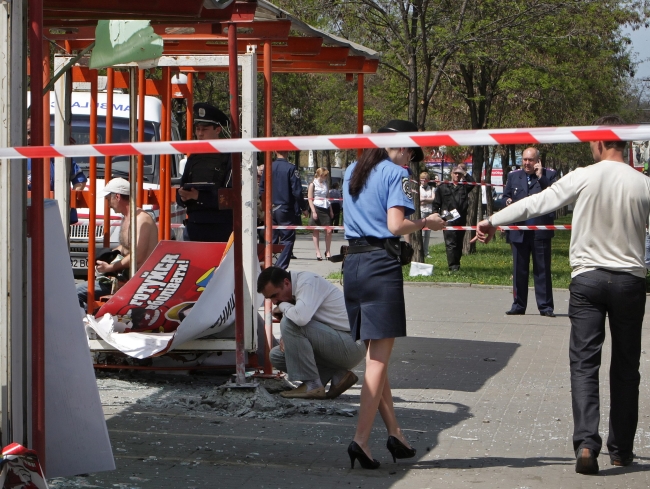
photo - PAP/EPA/Nikolay Myakshkov
PM Donald Tusk added that the Polish government was taking the events seriously, especially in the context of the up and coming Euro 2012 championships.
"We must take this very seriously," Tusk said.
"A terrorist attack in our region should be seen as something highly unusual," he added, though, "the context of Euro 2012 makes us especially sensitive to such incidents."
Tusk said that those responsible for security during Euro 2012 in Poland have already been in contact with their Ukrainian counterparts.
Local police in Ukraine are launching an investigation into what is being regarded as a terrorist attack, after 29 people were injured in at least four blasts, at a tram stop, a school, near a railway station and an opera house.
The police say all the blasts in the city of around 1 million inhabitants were caused by “improvised devices” planted in rubbish bins.
“Our best investigators and detectives will be looking into the incident,” Ukraine’s president, Viktor Yankovich has said.
The closest large city to Dnipropetrovsk is Donetsk, where matches will take place during the Euro 2012 football championships.
The England team, which will be based in Krakow, southern Poland, will be playing their group matches in Donetsk, and the news of the blasts will not help the Ukrainian football association fill hotels and sell tickets for the games.
Reports have already noted that ticket sales are slow from abroad after UEFA president Michel Platini complained of “swindlers and bandits” putting up hotel room prices far above usual levels.
Extortion?
This is not the first time bombs have gone off in the eastern Ukraine region.
On January 20, 2011, two bombs went off in Makeevka in the Donetsk region. Nobody was hurt.
In November 2011, a rubbish bin exploded on Karl Marx Avenue in Dnepropetrovsk killing one person.
In both cases, the bombs were placed in rubbish bins.
Police say that the previous attacks were made by criminal gangs trying to blackmail money out of the authorities. (pg)